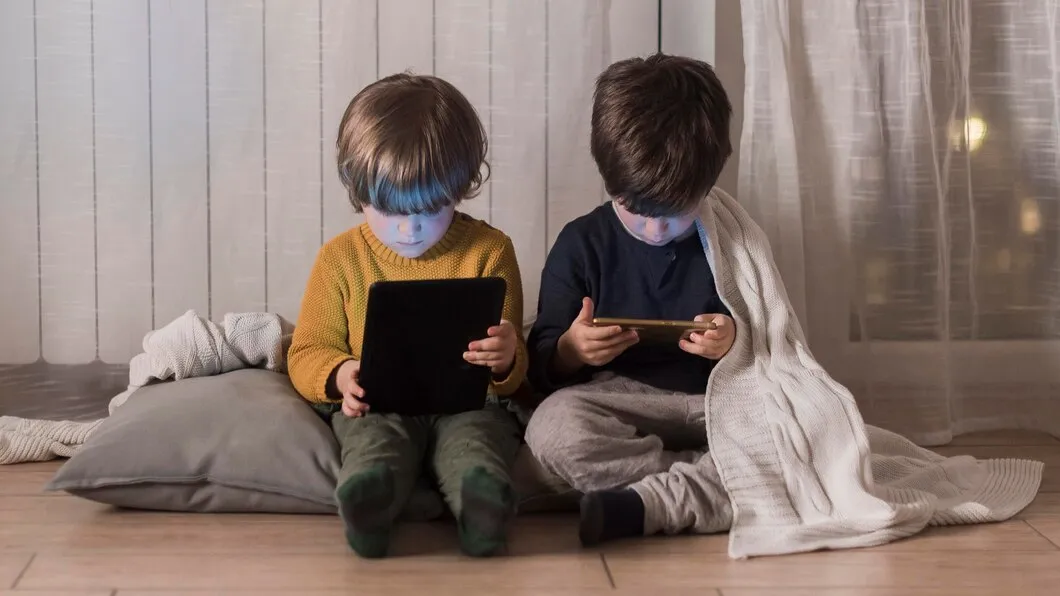
In today’s digital age, social media is almost impossible to avoid. Many adults use it to connect, entertain, and inform themselves, but children, too, are increasingly drawn to social platforms at a young age. While social media can offer some positive experiences, early and unsupervised exposure can also have significant negative effects on children’s mental health.
Table of Content:-
Here’s why early access to social media without guidance can be problematic and what parents and caregivers can do to help, according to our expert Dr Nikhil Nayar, Psychiatrist, Sharda Hospital - Noida.
Rise Of Early Social Media Exposure
Social media platforms were originally designed for adults, with age restrictions often set at 13 and above. However, children are frequently exposed to social media much earlier, often through siblings, parents, or their own devices. Many children find ways around age restrictions, opening accounts on platforms like Instagram, or YouTube at a very young age, sometimes as early as 8 or 9 years old. In fact, there are children in almost every household that won't eat without watching their favourite cartoons.

However, without proper guidance, these young users may experience detrimental effects on their developing minds and sense of self. Unlike adults, children lack the cognitive maturity to process the vast and complex content that exists online, which can leave them vulnerable to negative experiences.
Also Read: Instagram Leads or Misleads: Can Coconut Actually Help with Weight Loss? Expert Debunks Myth
Impact On Children’s Self-Esteem
One of the most immediate impacts of unsupervised social media use on children is the effect on self-esteem. Social media often portrays an idealised version of life, with users posting edited photos and sharing highlights of their day. For a young child, who is still building their self-image and self-worth, comparing themselves to these unrealistic standards can lead to feelings of inadequacy, jealousy, and low self-esteem. They may start questioning their appearance, abilities, and popularity, which can lead to long-term issues with self-confidence and self-worth. Here are a few other things, according to our expert:
1. Increased Anxiety and Depression
Studies have shown a link between excessive social media use and mental health issues such as anxiety and depression, even in children. The constant exposure to 'likes' and 'followers' as measures of worth can lead children to associate their self-esteem with online validation. This cycle of seeking approval can cause heightened anxiety, as children become concerned with their social media image and worry about being accepted online.

Additionally, exposure to distressing content, cyberbullying, or negative comments without adult supervision can deeply impact a child’s emotional state, increasing their risk of anxiety and depression.
2. Cyberbullying and Online Safety Risks
Children who use social media without supervision are also more vulnerable to cyberbullying. Online bullying can be particularly damaging, as it can happen at any time, leaving children feeling trapped and without a safe space. Unlike traditional bullying, cyberbullying can involve larger audiences, making children feel publicly humiliated and powerless. Exposure to inappropriate content or interactions with strangers are other risks that children may not recognise as dangerous, further highlighting the need for guidance and supervision.
Also Read: FDA Issues New Warning For Popular Weight Loss Drugs—Here's What You Need To Know
3. Screen Time and Reduced Physical Activity
Social media’s addictive nature can lead children to spend excessive time on screens, limiting physical activity and social interactions in real life. Children who use social media extensively may also struggle with sleep, as excessive screen time, particularly before bed, disrupts natural sleep patterns. Reduced physical activity and poor sleep can contribute to negative moods and lower overall mental well-being.
How Parents And Caregivers Can Help
The best way to prevent these issues is by monitoring and limiting children’s social media exposure. Here are some tips:
- Delay access
- Set boundaries
- Educate on online safety
- Encourage real-world interaction
Bottomline
While social media can be a valuable tool, early and unsupervised exposure can harm children’s mental health in profound ways. Parents and caregivers play an important role in guiding children through the digital world and helping them develop a balanced, healthy relationship with technology.
How we keep this article up to date:
We work with experts and keep a close eye on the latest in health and wellness. Whenever there is a new research or helpful information, we update our articles with accurate and useful advice.
Current Version